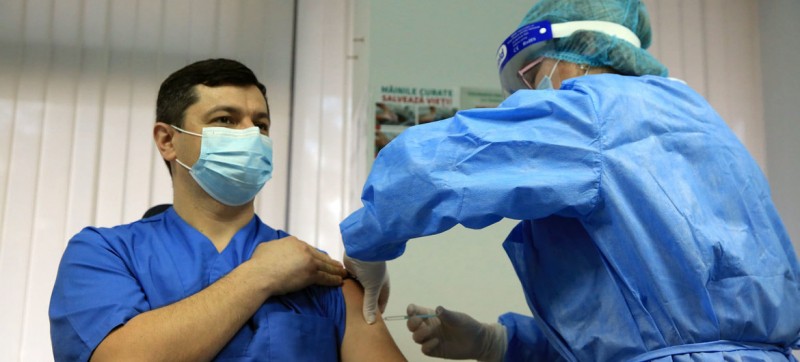Moldova was the first European county to receive COVID19 vaccines through the COVAX Facility. About 22 months since the first cases of COVID-19 were reported, and almost a year since the first vaccines were approved, reported cases and deaths from the virus are increasing again. The warning came from WHO Director-General, Tedros Adhanom Ghebreyesus, speaking to journalists in Geneva on Thursday. More than 5 million deaths have now been reported, and WHO believes the real number is higher. More than 50,000 people are losing their lives every week. In the last seven days, 56 countries, from all regions, reported an increase in deaths of more than 10 per cent. Tedros highlighted reports about lack of intensive care unit beds, lack of supplies, overwhelmed health workers, and hospitals deferring other needed procedures. “Let me be very clear: this should not be happening”, he said. “We have all the tools to prevent COVID-19 transmission and save lives, and we continue to call on all countries to use those tools.”
More vaccines
On Wednesday, WHO added yet another new tool, with the Emergency Use Listing of Covaxin, the 8th vaccine to receive WHO validation.
On that topic, Tedros kept pointing out the inequality in the distribution of vaccines, saying that most low-income countries are relying on the UN-backed international COVAX initiative. According to him, the initiative has the money and the contracts needed, but “manufacturers haven’t played their part.”
“No more vaccines should go to countries that have already vaccinated more than 40 per cent of their population, until COVAX has the vaccines it needs to help other countries get there too”, he argued.
He stressed that no more boosters should be administered, except to immunocompromised people, and repeated his call for a moratorium on the extra shots.
Familiar new wave
According to WHO, every single country in Europe and Central Asia is facing a real threat of COVID-19 resurgence, or already fighting it.
In a statement released this Thursday, WHO Regional Director for Europe said that the current pace of transmission across the 53 countries of the WHO European Region is “of grave concern.”
According to Dr. Hans Kluge, cases are once again approaching record levels, with the more transmissible Delta variant continuing to dominate transmission.
Over the past 4 weeks, the continent has seen increase in new cases greater than 55 per cent. Last week, Europe and central Asia accounted for 59 per cent of all cases globally and 48 per cent of reported deaths.
“We are, once again, at the epicentre”, Dr. Kluge said, adding that hospitalization admission rates due to COVID-19 more than doubled in one week.
There are increasing trends across all age groups, but 75 per cent of fatal cases are in people aged 65 years and above.
One estimate predicts that, if the countries stay on this trajectory, there could be another half million deaths in Europe and Central Asia, by 1 February next year.
Vaccines and social measures
According to WHO’s Regional Director, there are two reasons for this surge: insufficient vaccination coverage, and relaxation of public health and social measures.
“Despite near-record COVID-19 cases, new deaths are at approximately half the peak levels. This reflects the life-saving effects of vaccines and the Herculean task of health authorities, the health workforce and communities, to develop, administer and accept vaccines”, Mr. Kluge said.
So far, one billion doses have now been administered in Europe and central Asia.
Countries of Europe and Centra Asia are, however, at different stages within the pandemic. On average, only 47 per cent of people have completed their vaccination. While eight countries have now exceeded 70 per cent coverage, in two countries, the rate remains below 10 per cent.
“The vaccines are indeed doing what they were intended to do: preventing severe illness and death”, Mr. Kluge assured.
Regarding public health and social measures, he said that testing, contact tracing, ventilation in indoor spaces, and physical distancing, remain part of the defensive arsenal.
“These are tried and tested measures that enable lives to continue while controlling the virus and avoiding widespread, damaging lockdowns”, he argued.



